1906-1910
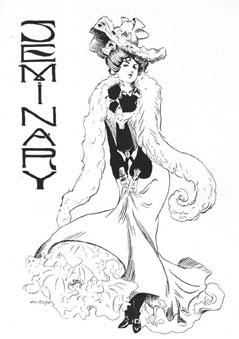
|
1906
|
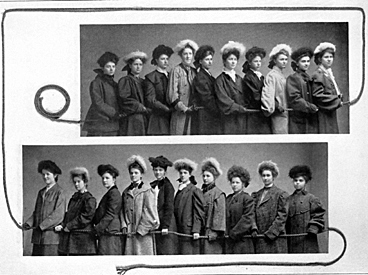 |
C. E. A Colors: Dark Blue and White MEMBERS Irene Barton, Ferne Braddock, Mary Bower, Vera Duncan, Nancy Finley, Mary Halfpenny, Edith Kelley, Carrie McCaskie, Ursula Parmley, Louise Savage, Mary Stanton, Ruth Stevens, Dorothy Wall, Mary Weddle, 1906 L'Agenda |
||||||||||
|
1906
|
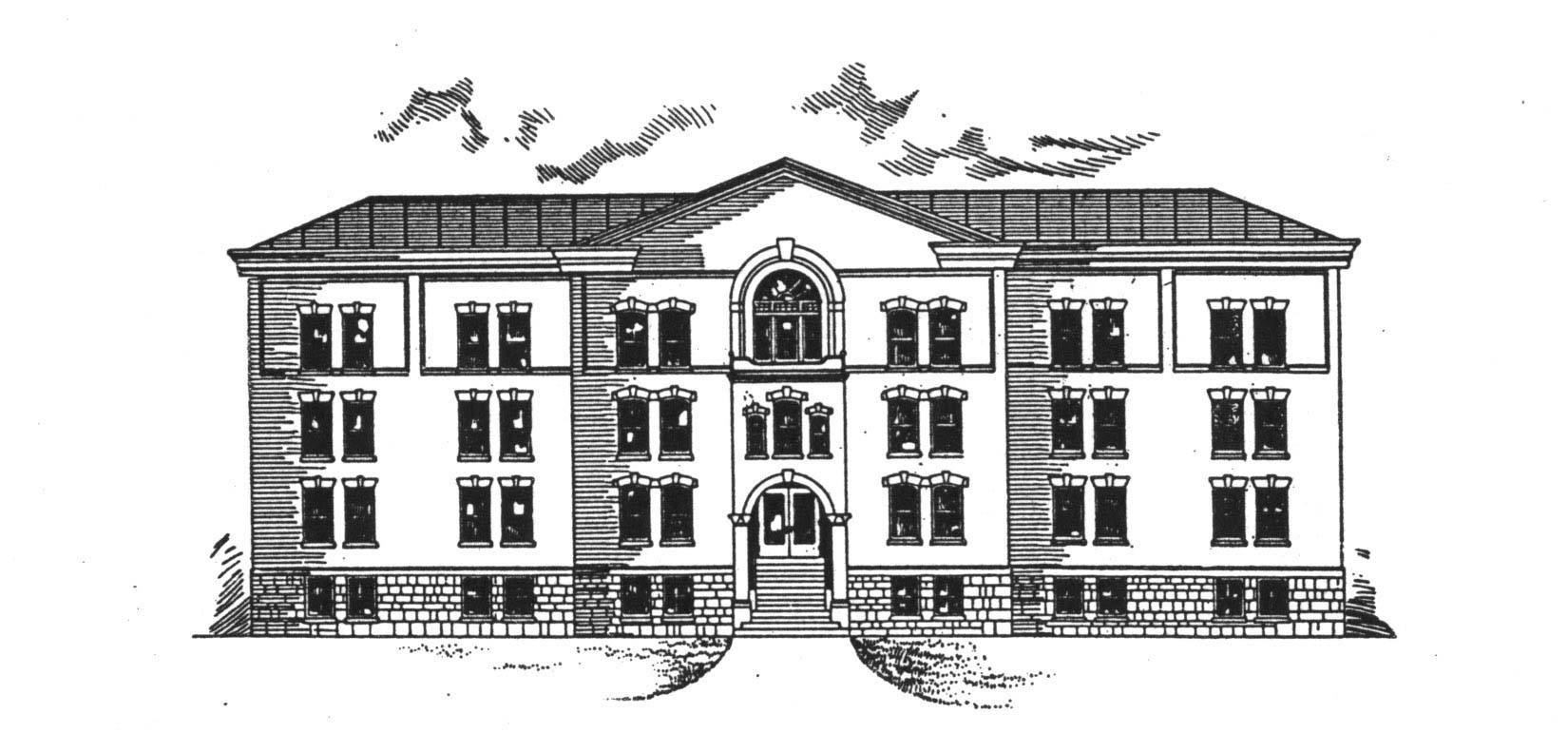 |
THE UNIVERSITY NEW BUILDING The new Cottage for women at Bucknell University, on which work has already begun, will be ready by the opening of the fall term, September 25, 1905. It will be one hundred and twenty eight feet long, forty feet wide, and will rise three stories above the basement. The building will be built of pressed brick with brownstone trimmings and will contain eighty-seven rooms. Cornerstone Laid March 31, 1905. L'Agenda 1906 |
||||||||||
|
1906
|
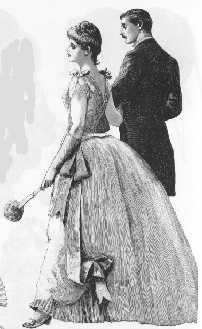 |
THE JUNIOR PROM When Bucknell University was founded, it was explicitly stated by those self-sacrificing builders, that should the school ever become co-educational, by no means would the young ladies of the institution be permitted to dance. Accordingly when the bars to the co-eds were taken down, it was done so with the strict understanding that there should be no dancing whatever, not to think of a public function. From year to year numerous pleadings were brought before the "Powers that Be," that the Semites might attend the Prom--but prayers, pleadings, tears, and sighs were of no avail. This year, however, when the ever-glorious class gave their Prom, the stern and never-bending will was forced to "wave his hand" in assent. True, this decision was arrived at after years of trying deliberation; many tears had been shed, and not infrequently have painful sighs been given vent. But at last the old long-cherished tradition was set aside. This act met the approval of the rest of the faculty, who gave the following reasons for their decision: I. All other colleges allow the privilege of dancing, and Bucknell is decidedly behind the times in thus restricting the ladies of the institution. II. Society of a high and polished type is one of the most important factors in a complete education; and nowhere can better society be found than at the Annual Prom. III. Bucknell is severly criticised for its useless conservatism and narrow-mindedness. Therefore these failings ought to be corrected. This stand taken by the faculty was announced one morning in chapel. So great was the joy over the new privilege about to be granted that college was closed for three days for general merry-making. Extensive preparations were now made for this great event and on the appointed evening we girls started for the Prom, chaperoned by our preceptress Miss Bush. 1906 L'Agenda |
||||||||||
|
1906
|
A CODE OF RULES FOR SEMITES AT THE GAMES Miss Schillinger on a tabouret with Semites gathered around her: Now, girls, we are about to start for the basketball game and as the most of you have attended anything of the kind before, I feel that I must give you a few points before we go. First. Follow the leader, Miss B., always and ever do just as she does. Second. Proceed by the usual way to the gym. Third. Go two by two, and see that space of exactly two feet is kept between each couple. Fourth. Keep the line perfectly straight and do not break ranks. Fifth. Upon entering the gym give your tickets to the man at the foot of the stairs instead of keeping them yourselves. Sixth. When your escort meets you, at the head of the stairs, should you chance to have one, by all means do not talk to him or receive any courtesies from him. It is not in good form. Seventh. Try to occupy a different bench from your escort if possible. If not, be sure to leave the conventional two feet between you when you are seated. If then you are unable to make the gentleman hear what you say, just shout at him or make deaf and dumb signs. By all means, do not get nearer to him than two feet. This is according to decorum. Eighth. Be sure to hold your own coat, rubbers, umbrella, furs, gloves, muff and whatever else must be held, one your own lap, and do not burden the gentlemen with them. Ninth. Be sure to look under the railing rather than over, while watching the game. Tenth. Between halves address no questions to your escort, and answer all his questions by "yes" or "no." Limit your conversation to fifty words, as it is not polite to talk too much. Eleventh. When the game is over, dismiss your company immediately without taking a step. If he is slow about going just push him under the railing or out the window or hit him with your umbrella. You know there is more than one stair-case in the gymnasium. Twelfth. Put on your own coat and do not allow him to assist you. It looks much better to see a lady put on her own wraps while the gentleman keeps his seat with folded hands. Thirteenth. All gather in the little alcove at the head of the stairs and wait while the others pass out. Fourteenth. When everyone has passed down the stairs, let my little Semites form in line according to size. Fifteenth. When the signal is given, start with the right foot and proceed down the stairs, remembering the space of two feet. Try to do this real well for you know all the college men stand at the foot of the stairs to see you march out. It brings back to their minds, sweet remembrances of the penitentiary. Sixteenth. Proceed to the Sem. without breaking ranks, always remembering to follow the leader. Now girlies, we are ready to start. Try to remember these little rules of etiquette that I given you, and at the end of the game I will give a prize to the little girl who remembers them the best. L'Agenda 1906 This entry from the yearbook poking fun at the rules governing female students' behavior, indicates some of the social restrictions women experience. |
|||||||||||
| 1907 |
ANNUAL REPORT Date of organization or foundation 1846 Name courses of study and number of years in each course
Whole number of students rolled during the year 88 Whole number of students since foundation 5234 Average annual cost of tuition per student 65 for day student |
|||||||||||
| 1907 |
Excerpts from a Freshman Girl's Diary Friday Night, Oct. 2, 1907 Saturday, Oct. 3rd, 1907 |
|||||||||||
|
1907
|
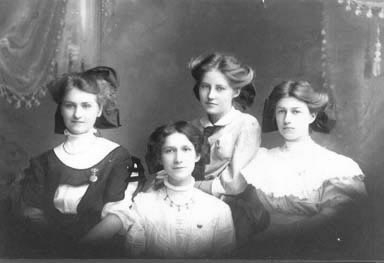 |
Margaret McClure '12, Ruth Mohn '11, Dorothy Wolfe '11, Ellen Focht '10, students at the Women's Institute. Personal Collection of Margaret Baker |
||||||||||
|
1909
|
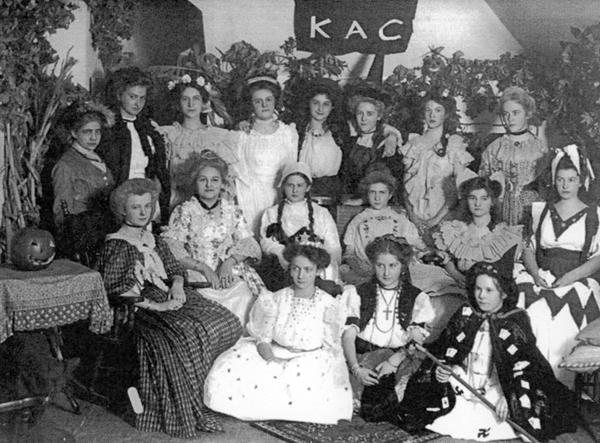 |
HALLOWEEN PARTY COLLEGE WOMEN DEVOTE "The Hallow'een Party, under the management of Miss Shillinger and the "Frill and Frown," was an especially delightful affair this year. All Saturday evening was devoted to the fun. Each girl appeared in costume at dinner, as Witches, Red Riding Hood, Milk-maids, and other dress representative of the "Witches Eve." All went directly to the New 'Gym' after dinner where 'spooky' entertainment was offered, and mirth provoking games indulged in. Goblins and Oracles were consulted by the curious ones, while the 'Fates' handed out at the 'Witches Post Office' were received with resignation by those who saw no use of resisting the inevitable. Abundant refreshments were placed where all could help themselves and everyone was happy. The prize for the most original costume was awarded to Rebeccah Gibbsons, '13, for the prettiest costume to Helen Clark; and for the prettiest booth to Florence Clum,'12." Orange and Blue |
||||||||||
| 1909 |
Loudness As A Handicap "The most difficult thing for the Freshman girl to overcome," put in the English Assistant, "is loudness. More than once have I seen young women who had every semblance of good breeding and good nature, who were pretty, and who naturally would have had the sympathy of their fellows and of the Faculty, lose something of both because they were thoughtlessly "loud" and rough. They had not learned to comprehend fully the rights of others and seemed negligent of the little niceties of life that make existence worth while." "Why should they do this-because of thoughtlessness?" "Not that," broke in the Dean's Wife, "it is because they have been brought up in country towns, where there is greater freedom of social manners than in the city. The country town has the maximum of liberty and the minimum of chaperonage for the young woman. She learns, if she be a wide-awake and energetic girl, to push herself to the front, to make a way for herself, and when she comes in contact with the larger world she keeps on doing it. It is not the worst thing that could happen to her, for it can be turned into positive advantage." "Such girls are usually the ones that have the greatest part in the doing of things," suggested the Editor's Wife. "Two of the 'loudest' girls I ever knew won out in the end. But they came here to have a good time-then learned better and worked for honors. They won them, too, and became in their Junior and Senior years the most modest of our girls." That is the testimony of a woman who has been in touch with the girl's side of a great university for twenty-two years. The history of those girls is that of thousands of others; they did not win completely until they subdued their own overabundant activity to the demands of the social conditions around them. It is the great lesson that every girl who goes to college must learn: that she is more certain to win if she is thoughtful of the needs of those around her, if she will be the first to regulate her social ambitions and not wait for some one else to compel her to observe the canons the world has established. Somehow, more is expected of the college girl than of the college boy. She is the embodiment of social grace in the school; she has the standing of the institution, socially, to maintain. She is always under the surveillance of scores of eyes who take note of her every act. In other words, the college girl is placed on a pedestal and is observed at close range; she must allow no subtle advantage to escape her, for if she does she loses a prestige it will take her long to regain. Ladies Home Journal, September 1909 |
|||||||||||
| 1909 |
The Athletic Girl at College “It is getting fashionable for every girl to be athletic,” remarked the Magazine Writer; “but for my part it seems that it is overdone. I should like to know if there is really any benefit in that sort of development that helps a girl in her work.” “Just this,” said the Physical Culture Instructor: “she has greater confidence in herself because she knows that she can do things. Many a girl has failed in her studies because she did not have the strength for some extra strain on her physical energy. She collapsed with a nervous headache when the girl who could ride horseback—and liked to do it—could canter out on the country roads and get from the open air inspiration that carried her over the rough places. Somehow, the habit of being outdoors and of doing things that takes one to the country the year round makes a better thinker and a better student. The time thus spent is well used, for it gives a clearer brain with which to work.” “The girl who has been brought up to like athletic sports is usually the one who leads her class in school. In my town,” said the Magazine Writer,” the valedictorians of the High-School graduating classes during the past three years have been girls who rode two to four miles on horseback every day of the school year. One of them milked two or three cows before she started and after she returned. She ranked at the head of twenty-four, mostly town boys and girls with many social engagements taking up their time.” It does not follow that four miles of riding, rain or snow, or the milking of cows is needful to be successful; but it is evidence that a clear brain and a healthy body are mighty towers of strength when the trial of the schoolroom comes. Ladies Home Journal, September 1909 |
|||||||||||
| 1909 |
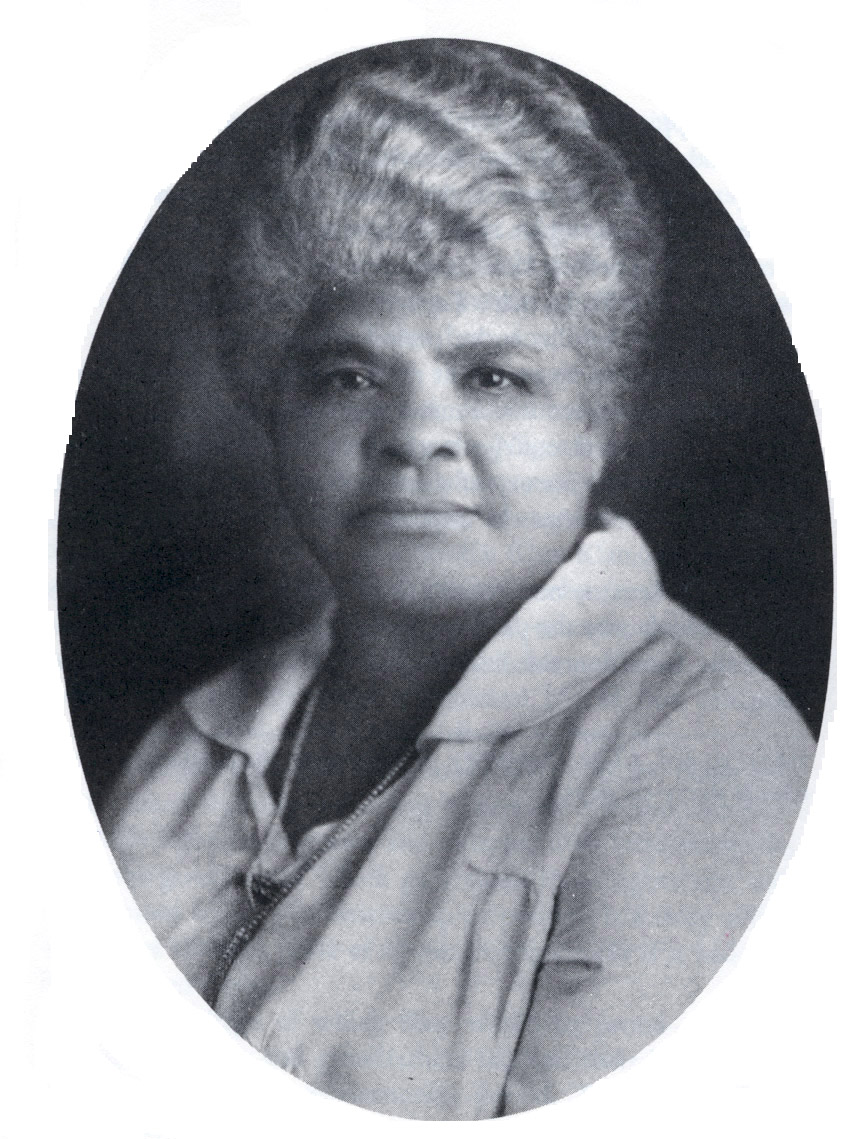 |
Ida B. Wells was born in Holly Spring, Mississippi, months before the signing of the Emancipation Proclamation. Wells became editor and co-owner of a local black newspaper called "The Free Speech and Headlight." Whn a respected black storeowner and friend of Barnett was lynched in 1892, Wells used her paper to attack the evils of lynching and encouraged the black townsmen of Memphis to go west. She took her cause to England to gain support and earned a reputation as a fiery orator and courageous leader of her people. Upon returning to the U.S., she settled in Chicago and formed the Women's Era Club, the first civic organization for African-American women. | ||||||||||
|
1910
|
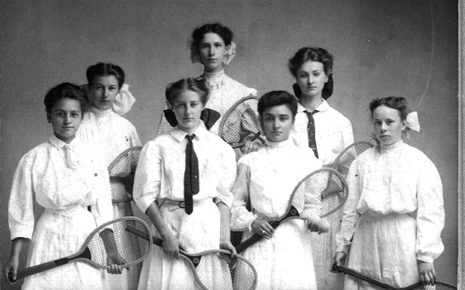 |
Women's Institute -- Sewing & Tennis Club Personal Collection of Margaret Baker |
||||||||||
|
1910
|
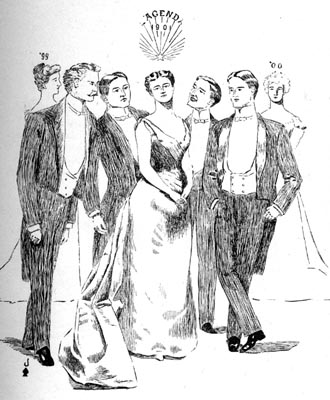 |
The Good Time Maidens They ain't no genius 'bout 'em,
Don't matter ef they giggle-- So, this friv'lous sort o' maiden, *This image was scanned from the 1901 L'Agenda L'Agenda 1910 |
||||||||||
|
1910
|
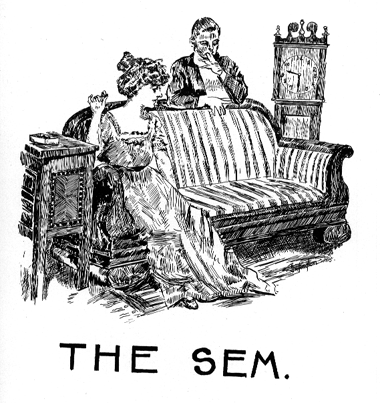 |
The Sofa's Soliloquy Thank Goodness, Tommy's nine o'clock bell has rung and I can look forward to another week's rest! This life is certainly strenuous! Oh, my poor legs and back! Imagine how you would feel being pounced upon once a week by a Wolfe or crawled over by a Spider. I live in mortal terror from one week's end to another, for promptly at the stroke of seven every Saturday evening I become the one and only desirable thing in Seminary parlors. Voices in the distance--the patter of dainty feet--a sudden rush--a wild scramble--I hold my breath--I shut my eyes--I sink 'neath the weight of five hundred avoirdupois. But there is some compensation in this life for at once I become the chief topic of conversation. I overhear such remarks as these: "It makes me sore! That old Jay over there, gets on that sofa, by Joe, every Saturday night. I'll get here early enough next week!" Words like this make me feel quite proud and then some times I even have the honor of supporting people of Royal birth! Then, of course, I do get a kind of pleasure out of looking around and seeing the dear children enjoy themselves. I do feel sorry sometimes for that dear little light-haired boy over in the corner, who occasionally goes to sleep, but it doesn't happen in every Case. I sometimes overhear rather interesting conversations, but usually at the critical moment, the buzzer sounds or a tall form approaches on horseback, dismounts at the parlor door and says in a sepulchral voice, "Twenty-one!--twenty-two!--Twenty-three! You know what that means!" There is a moment's silence, a clasp of the hand and I am left, as now, to smooth out my ruffled surface, gather together my failing forces and await the next ordeal. L'Agenda 1910 |